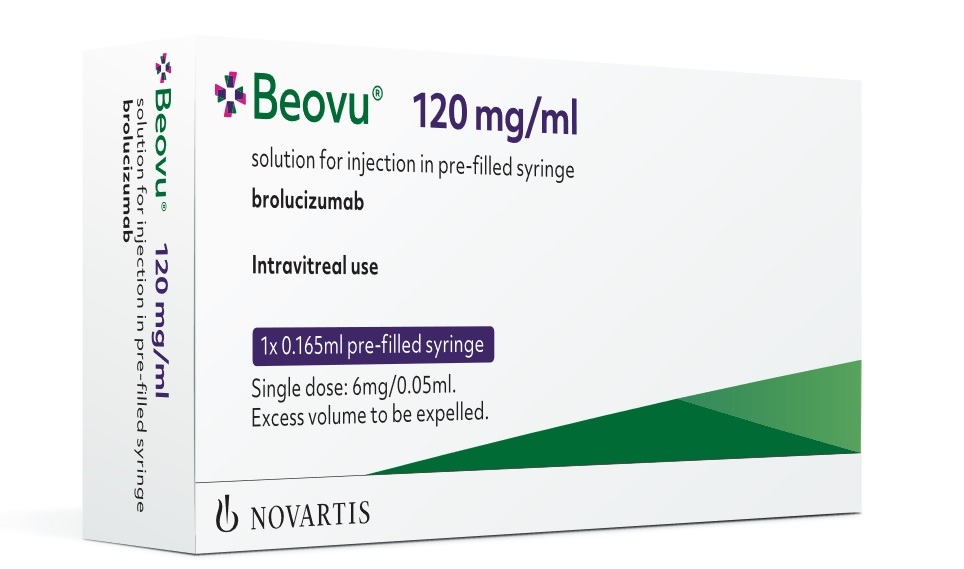Novartis' Beovu (brolucizumab) injection has secured approval from the US Food and Drug Administration (FDA) for the treatment of wet age-related macular degeneration (AMD).

Image: Product shot of Novartis' Beovu (brolucizumab) injection. Photo: courtesy of Novartis AG.
Subscribe to our email newsletter
Beovu, which is also known as RTH258, is now the first anti-VEGF to be approved by the regulator.
According to Novartis, the drug can offer greater fluid resolution compared to aflibercept. Furthermore, the VEGF inhibitor is also said to have the ability to maintain eligible wet AMD patients on a dosing interval of three months immediately after a three-month loading phase with efficacy.
Novartis Pharmaceuticals president Marie-France Tschudin said: “The approval of Beovu delivers on the Novartis commitment to reimagining treatments for patients suffering from serious visual impairment.
“The product labels of existing treatments state that they are not as effective when dosed every 12 weeks.
“Beovu is the first to offer less frequent dosing in the first year of therapy while maintaining its effectiveness. This gives more time for wet AMD patients to focus on what’s important in their lives.”
Considered to be a chronic, degenerative eye disease, wet AMD is caused by excess of the VEGF protein which encourages the growth of abnormal blood vessels underneath the macula, the area of the retina that is associated with sharp, central vision.
By blocking VEGF, Beovu restricts the growth of abnormal blood vessels and the potential for fluid leaking into the retina. The drug is a humanized single-chain antibody fragment (scFv), whose structure is claimed to result in a small molecule (26 kDa) with potent inhibition of, and high affinity to, all VEGF-A isoforms.
The FDA approval for the VEGF-inhibitor was based on the findings of two phase 3 trials called HAWK and HARRIER. The Novartis wet AMD candidate delivered non-inferiority in comparison to aflibercept in the two trials in mean change in best-corrected visual acuity (BCVA) in the first year of treatment.
According to Novartis, in both the HAWK and HARRIER trials, about 30% of patients gained over 15 letters at year one.
As early as week 16 and at year one, Beovu could reduce the central subfield thickness (CST) to a great extent, while a lesser number of patients had intra-retinal (IRF) and/or sub-retinal fluid (SRF), compared to aflibercept, said Novartis.
The HAWK and HARRIER trials enrolled a total of more than 4,800 patients across the world. The two trials compared the efficacy and safety of intravitreal injections of brolucizumab in comparison to aflibercept 2mg in wet AMD patients.
 Advertise With UsAdvertise on our extensive network of industry websites and newsletters.
Advertise With UsAdvertise on our extensive network of industry websites and newsletters.
 Get the PBR newsletterSign up to our free email to get all the latest PBR
news.
Get the PBR newsletterSign up to our free email to get all the latest PBR
news.

